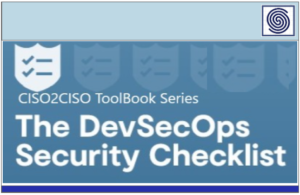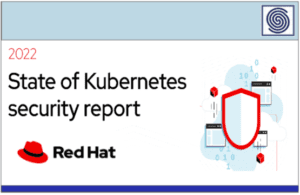Source: www.cybertalk.org – Author: slandau
By Zac Amos, Features Editor, Rehack.com.
Hiring gig workers and freelancers has a lot of business benefits, allowing companies to utilize the contractors’ expertise while saving money. Unfortunately, the rise of the gig workforce also opens up a new problem for businesses: increased cyber security vulnerabilities.
If companies want to work with freelancers, they must understand the security issues that may arise and how to address them.
The need for secure collaboration
Industries across the board are increasingly leaning on the expertise and flexibility of freelancers and contractors, with about 57 million freelance workers in the U.S. — a number experts forecast to grow by 17% in the coming years.
While beneficial in many respects, this surge in remote, independent workforces also elevates the risks of data breaches and cyber security threats. For instance, gig workers often save and access data across a more diverse range of systems and networks, as these individuals may work for multiple clients with varying security protocols.
Notably, up to 91% of U.S. corporations face the challenge of losing laptops or other portable devices to theft or loss, underscoring the vulnerability of data in such work arrangements. Beyond the immediate loss, data breaches’ legal and reputational consequences can be severe. They can result in significant financial penalties, loss of customer trust and long-term damage to a company’s brand.
1. Implement access control measures
Companies can mitigate data exposure risks by implementing robust access control and permission systems. A startling statistic reveals that 87% of contractors retain access to accounts containing sensitive data from previous clients, highlighting a widespread oversight in managing access rights.
To address this, businesses must ensure that freelancers and contractors are granted strict access to the information and systems necessary for their specific tasks. This approach, often called the principle of least privilege, ensures that each individual has the minimum level of access to perform their job functions.
Companies can dramatically reduce the risk of unauthorized data access and potential breaches by regularly viewing and revoking access when they complete a project or when a contractor’s role changes. This practice protects sensitive information, aligns with data protection regulations and safeguards the company from legal repercussions.
2. Use of secure platforms for collaboration
Having secure and encrypted platforms through which to chat about and manage projects is vital for a successful digital workspace. These platforms protect sensitive information through encryption, making it harder for unauthorized individuals to access data.
For example, Slack, often used for team communication, and Asana, commonly used for project management, are known for their robust security measures, including data encryption in transit and at rest. By choosing such reputable platforms, companies can significantly reduce the risk of data breaches and ensure that their collaborations with freelancers and contractors are secure and efficient.
3. Regular security audits and compliance checks
Keeping a close eye on the systems and platforms freelancers use through regular security checks is imperative, especially considering that organizations worldwide detected a staggering 493 million ransomware attacks in 2022 alone. These audits help identify vulnerabilities and ensure that the digital tools and environments freelancers use meet the highest security standards.
Further, compliance checks are crucial in this process, as they verify that the freelancers and companies they work for adhere to relevant industry standards and regulations. Implementing these practices can help protect businesses against cyber threats and keep sensitive operations and data safe.
4. Secure file-sharing practices
Secure file-sharing methods, particularly those that utilize encryption, safeguard against unauthorized access and data breaches. These services encrypt files at rest and during transit and guarantee that only the intended recipient reads the data. In contrast, using unsecured methods — like standard mail attachments or non-encrypted file transfer services — expose sensitive information to potential intercepts and unauthorized users.
The benefits of secure alternatives go beyond protecting data. They also foster trust with clients and contractors by demonstrating a commitment to cyber security; complying with data protection laws and reducing the risk of costly data breaches. These advantages make encrypted file-sharing services an essential component of a company’s security strategy, especially in collaborations involving sensitive or proprietary information.
5. Education and training
Educating freelancers on cyber security best practices is critical, especially because phishing remains the most commonly reported cyber crime in the U.S., with over 300,000 cases in 2022. If freelancers and gig workers fall prey to phishing attempts, their direct access to company data and systems can result in data breaches and compromised systems.
Successful cyber attacks against anyone in a company — whether it’s an internal, full-time employee or the gig worker hired for one short project — threaten sensitive company information and can lead to significant financial losses and damage to the business’s reputation. Ensuring freelancers are well-informed about potential threats and how to avoid them is essential.
Implementing a brief training or orientation session on data security protocols can significantly mitigate risks. Such educational efforts can equip freelancers with the knowledge to recognize and respond to phishing attempts, secure their devices and networks, and adhere to password management and handling best practices.
Safeguarding data in freelance collaborations
A company is only as secure as its weakest link. Full-time employees may be supported by their IT team, but gig workers do not have unified cyber security standards to protect their data. Businesses must take proactive steps to ensure that freelancers and contractors secure any data they interact with. Adopting innovative practices, like using secure platforms and teaching freelancers about cyber security, is essential to keep the cyber attackers out, the data safe, and everyone collaborating smoothly.
For more cyber security thought leadership from Zac Amos, click here. Lastly, to receive cutting-edge cyber insights, groundbreaking research and emerging threat analyses each week, subscribe to the CyberTalk.org newsletter.
Original Post URL: https://www.cybertalk.org/2024/04/12/how-to-protect-company-data-in-the-gig-economy/
Category & Tags: OPINION,business,cyber attacks,cyber security,cybersecurity,Freelancers,gig economics,gig economy,security,threats – OPINION,business,cyber attacks,cyber security,cybersecurity,Freelancers,gig economics,gig economy,security,threats




















































